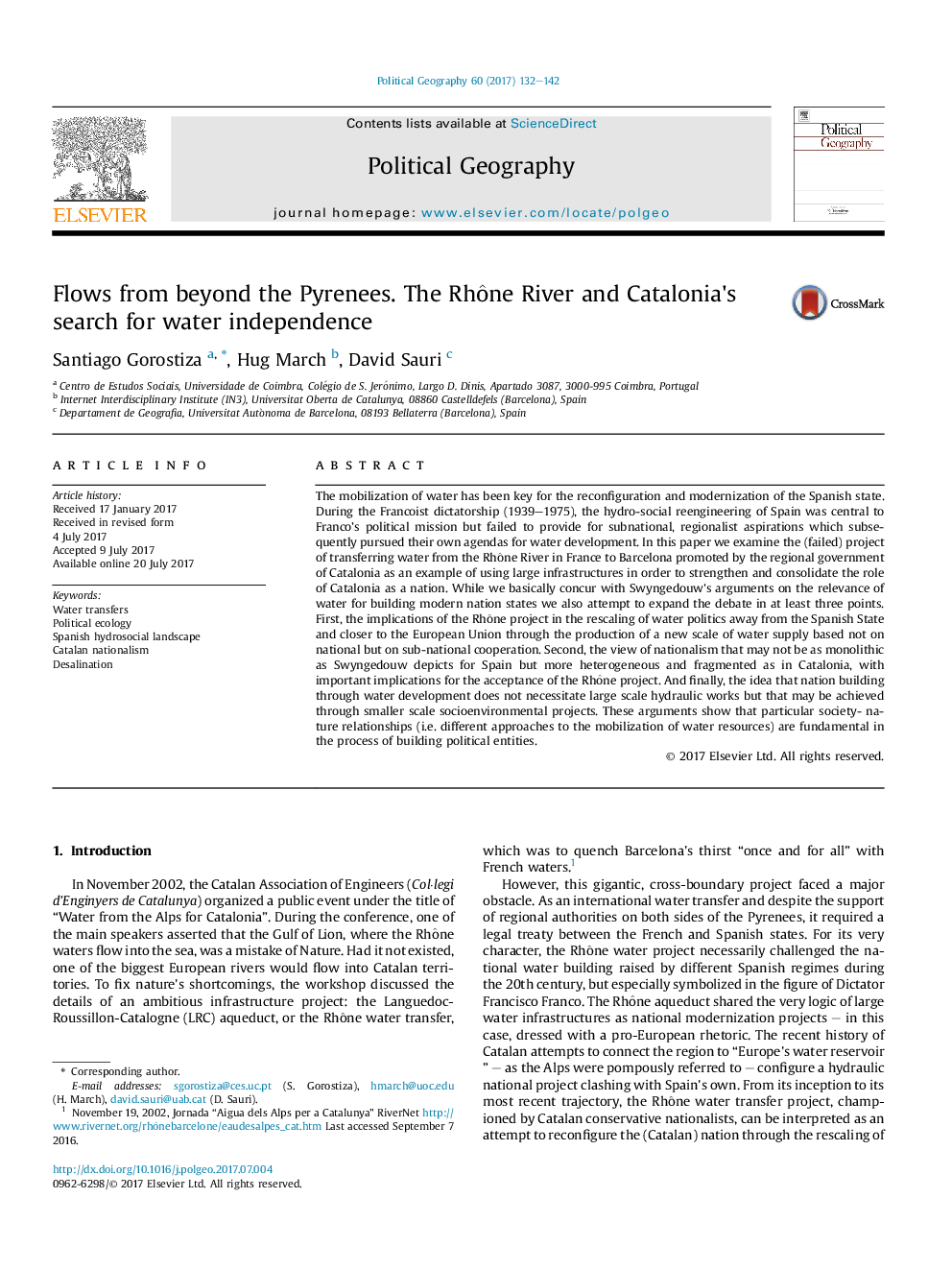| کد مقاله | کد نشریه | سال انتشار | مقاله انگلیسی | نسخه تمام متن |
|---|---|---|---|---|
| 5118517 | 1485572 | 2017 | 11 صفحه PDF | دانلود رایگان |
- The nation-state has been the building block of modern water policies.
- Rescaling the water management upwards towards the transnational scale and downwards to the regional scale is a key process.
- Regional entities may strive to imagine and implement their own modernization projects based on water.
- The (failed) Rhône water transfer project was promoted by Catalan conservative nationalists using pro-European imaginaries.
- Nation building through water may be achieved through smaller scale socioenvironmental projects.
The mobilization of water has been key for the reconfiguration and modernization of the Spanish state. During the Francoist dictatorship (1939-1975), the hydro-social reengineering of Spain was central to Franco's political mission but failed to provide for subnational, regionalist aspirations which subsequently pursued their own agendas for water development. In this paper we examine the (failed) project of transferring water from the Rhône River in France to Barcelona promoted by the regional government of Catalonia as an example of using large infrastructures in order to strengthen and consolidate the role of Catalonia as a nation. While we basically concur with Swyngedouw's arguments on the relevance of water for building modern nation states we also attempt to expand the debate in at least three points. First, the implications of the Rhône project in the rescaling of water politics away from the Spanish State and closer to the European Union through the production of a new scale of water supply based not on national but on sub-national cooperation. Second, the view of nationalism that may not be as monolithic as Swyngedouw depicts for Spain but more heterogeneous and fragmented as in Catalonia, with important implications for the acceptance of the Rhône project. And finally, the idea that nation building through water development does not necessitate large scale hydraulic works but that may be achieved through smaller scale socioenvironmental projects. These arguments show that particular society- nature relationships (i.e. different approaches to the mobilization of water resources) are fundamental in the process of building political entities.
Journal: Political Geography - Volume 60, September 2017, Pages 132-142
